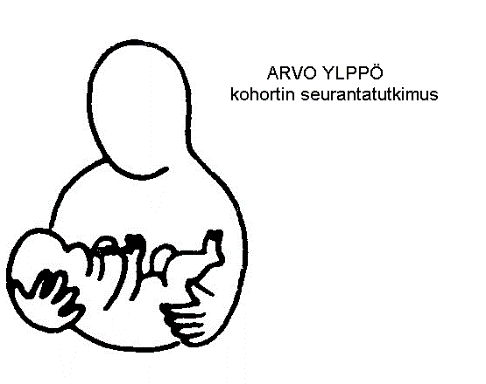The Finnish Arvo Ylppö Longitudinal study (AYLS) is a geographically defined epidemiological cohort performed in parallel and with an identical study design than the German Bavarian Longitudinal Study (BLS). The original aim of the study was (a) to identify the pre-/perinatal risk factors of developmental disorders, and behavior and cognitive problems, and (b) to compare the neonatal and later life outcomes of children born in Finland and Germany, where early neonatal intensive care differed.

© Arvo Ylppö
A total of 15311 infants were born between March 15, 1985 and March 14, 1986 in 7 maternity hospitals in Southern (Uusimaa County) Finland. AYLS cohort included 1535 infants who had been admitted to the neonatal ward or had been transferred to the neonatal intensive care unit of the Helsinki University Central Hospital within 10 days after birth. Additionally, every second term infant born in one of the three largest maternity hospitals and not admitted for observation constituted the control group. Hence, the original AYLS index group ranged from critically ill preterms to term borns with minimal complications and inpatient observation times. In addition to identical recruitment protocols, identical follow-ups of AYLS and BLS occurred at 5 months, 20 months, and 56 months allowing between-country comparisons. In addition, a young adulthood follow-up was conducted for AYLS participants at the age of 23-25 years providing many identical adulthood outcomes facilitating further the long-term between-country comparisons.
All identified participants living in Finland were invited to all follow-ups. The participation rate in adulthood follow-up was moderate being the lowest among those born the earliest and the smallest. On the other hand, as the invitation was not based on the gestational age of the child, the follow-up data also includes those born moderate and late preterm.
There are several papers published using the AYLS data. Studies focusing on adulthood outcomes have shown that late-preterm birth (gestational weeks 34-36) may not increase the risk of poorer neurocognitive functioning in adulthood. However, the double burden of being born late-preterm and small for gestational age (below 2 standard deviations for gestational age and gender based on country-specific growth curves) seems to increase this risk. Further, the studies have also identified resilience factors, which is important as many preterms do not develop problems later in life. Among the identified resilience factors is faster growth during the critical early period after the late-preterm birth, which was associated with better adult neurocognitive functioning in AYLS.

